
ICAS Bulletin (online ISSN 2836-3418, print ISSN 2836-340X) is published every other week throughout the year at 1919 M St NW, Suite 310, Washington, DC 20036.
The online version of ICAS Bulletin can be found at chinaus-icas.org/bulletins/.
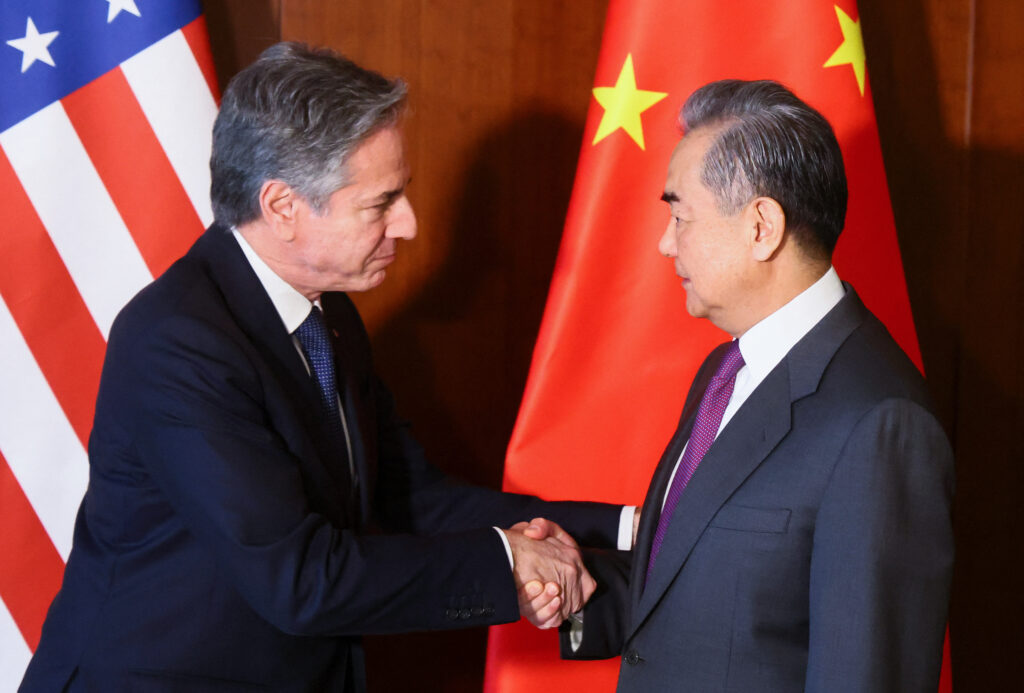
– According to a new “Global Diplomacy Index“ report by the Lowy Institute, the U.S. has closed the diplomatic post gap with China, now operating 271 compared to China’s 274, an indication, as some describe, of both nations vying for global influence.
– During a congressional visit to Taipei on February 22, U.S. Representative Mike Gallagher confirmed that the U.S. will continue supporting Taiwan, regardless of the result of the upcoming U.S. presidential elections, underlining bipartisan backing. In response, China has demanded the U.S. cease all official interactions with Taiwan.
– China reportedly intends to dispatch a new pair of pandas to the San Diego Zoo, symbolizing amity towards the U.S. The pair is anticipated to arrive by the close of summer 2024, thereby renewing the partnership following a five-year break after the return of the zoo’s previous pandas to China.
– Following Taiwan’s recent presidential election, the new top envoy to the U.S. affirmed to both Washington and Beijing the island’s commitment to upholding the status quo in the Taiwan Strait, despite Beijing’s critical view of President-elect Lai Ching-te, and emphasized bolstering informal connections with the U.S. to ensure regional stability.
– On February 16 in Munich, U.S. Secretary of State Antony Blinken and Chinese Foreign Minister Wang Yi held candid and constructive talks on various contentious topics including Taiwan, the South China Sea, Russia’s war in Ukraine, and synthetic opioids, as part of efforts to manage competition and maintain communication between the two nations.
Associated News References:
“US Narrows Gap With China on Diplomatic Posts, Report Says,” Bloomberg, February 25 [Paywall]
“China demands the US stop any official contact with Taiwan following a congressional visit,” AP, February 22
“US lawmaker in Taiwan visit reassures support regardless of U.S. election outcome,” Reuters, February 22
“China says it plans to send more pandas to the San Diego Zoo this year,” NPR, February 22
“After Taiwan’s election, its new envoy to the US offers assurances to Washington and Beijing,” AP, February 19
“Top diplomats from US, China hold ‘constructive’ talks on issues dividing them,” AP, February 16

– On March 6, a U.S. Senate committee will hold a hearing on a bill that would stop the U.S. government from signing contracts with biotechnology companies, such as BGI and WuXi AppTec, or companies that use Chinese companies’ equipment or services.
– The U.S. is scrutinizing Nippon Steel Corp.’s connections to China amid concerns over its deal to acquire United States Steel Corp. The checks are linked to attempts from the administration to protect its domestic industry from Chinese-sourced steel and could impact the acquisition due to Nippon Steel’s operations in China.
– The Biden administration intends to substitute cranes produced in China at the U.S. ports with domestically manufactured ones, investing over $20 billion from the 2021 infrastructure bill due to national security concerns.
– During a recent trip to Beijing, Jay Shambaugh, the U.S. Treasury’s Under-Secretary for International Affairs, cautioned China not to flood global markets with excessive goods as a solution to its industrial overcapacity issue.
– U.S. customs officials have seized numerous European luxury vehicles, including models from Volkswagen, Porsche, Bentley, and Audi, following accusations that certain components were associated with forced labor allegations in China’s Xinjiang region, thus causing Volkswagen to postpone deliveries until replacements by the end of March.
– U.S. Energy Secretary Jennifer Granholm expressed significant concern over China’s dominance in the critical minerals international supply chain and how it is impacting the global shift to low-carbon energy sources. She also stated the need for the U.S. to diversify and not over-rely on countries with differing values, while highlighting cooperation with allies like Australia and Canada.
Associated News References:
“US Senate committee sets hearing on China’s WuXi AppTec, BGI bill,” Reuters, February 26
“Nippon Steel’s China Assets Raise Concerns Over US Deal,” Bloomberg, February 22 [Paywall]
“U.S. to Invest Billions to Replace China-Made Cranes at Nation’s Ports,” The Wall Street Journal, February 21 [Paywall]
“US reportedly warns China against flooding global markets,” Baha Breaking News, February 19
“European car imports held up in US over banned Chinese part,” Euronews, February 15
“U.S. ‘very concerned’ about China’s dominance as a critical minerals supplier, energy chief says,” CNBC, February 14
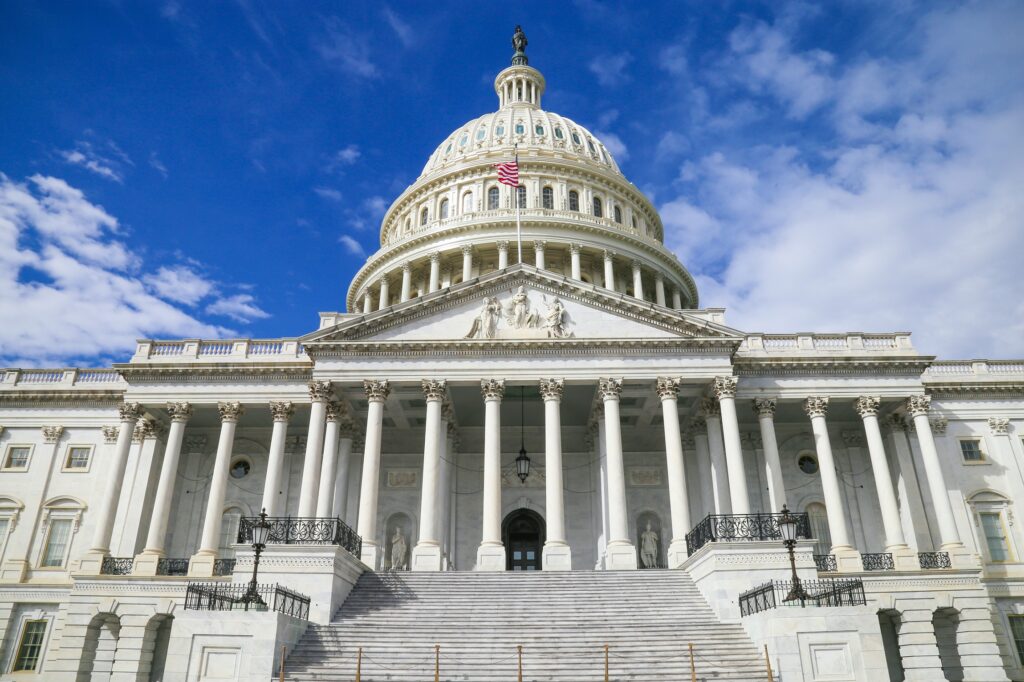
– Citing concerns over national security and economic interests, Republican lawmakers are urging a ban on McKinsey & Co. from obtaining federal contracts in the U.S. after a report revealed its think tank contributed to China’s 13th five-year plan.
– U.S. lawmakers are pushing to prohibit Chinese biotech firms from engaging with federally funded medical entities due to national security concerns, amidst a broader competition between the U.S. and China in the biotech sector.
– As conveyed by lawmakers at the Munich Security Conference, the U.S. is considering sanctions against Chinese companies aiding Russia’s war in Ukraine, reflecting growing concerns over Beijing’s support for Moscow and potential economic impacts on both nations.
– Republican Senator Marco Rubio has requested that the SEC prevent Shein’s initial public offering for the New York stock exchange until the company discloses risks related to its operations in China, highlighting worries about new Chinese regulations and potential forced labor issues.
– During a speech at the University of the Bahamas, Federal Reserve Governor Christopher Waller asserted the enduring global dominance of the U.S. dollar, despite challenges from cryptocurrencies and the Chinese yuan.
Associated News References:
“Call to ban McKinsey from US government contracts for China work,” Financial Review, February 26
“U.S. lawmakers are trying to bar Chinese biotech companies over fears about America’s failure to compete with China in the industry,” Fortune, February 19
“‘China has a lot more to lose’: U.S. considering sanctioning Chinese firms aiding Russia’s war,” CNBC, February 19
“Rubio urges SEC to block Shein IPO unless China operating risk disclosed,” Reuters, February 15
“Fed’s Waller Says US Dollar to Withstand Threats From China, Crypto,” Bloomberg, February 15 [Paywall]

– On February 26, the U.S. and nine other countries released a joint statement on the establishment of “shared principles for the research and development of 6G wireless communication systems.”
– An unauthorized online release of documents from a Chinese private security contractor linked to government agencies reveals extensive hacking activities and surveillance tactics against dissidents within China and abroad, including regions like Hong Kong and Xinjiang.
– At the Munich security conference, FBI Director Christopher Wray warned that the extent of Chinese cyberattacks on U.S. infrastructure systems is unparalleled, highlighting the placement of malware aimed at hindering vital operations.
– A new study says that a Chinese influence campaign, which is named Spamouflage and employs artificial intelligence and a vast network of social media accounts, is intensifying American division and dissatisfaction as the U.S. presidential election approaches while highlighting issues like urban decay and gun violence.
Associated News References:
“U.S. and allies endorse 6G principles amid tech race with China,” Axios, February 26
“An online dump of Chinese hacking documents offers a rare window into pervasive state surveillance,” AP, February 21
“FBI Director Says China Cyberattacks on U.S. Infrastructure Now at Unprecedented Scale,” The Wall Street Journal, February 18 [Paywall]
“Chinese Influence Campaign Pushes Disunity Before U.S. Election, Study Says,” The New York Times, February 15 [Paywall]

– Commerce Secretary Gina Raimondo highlighted the necessity for ongoing investments in semiconductor manufacturing to meet the explosive demand driven by artificial intelligence technologies. Meanwhile, chipmakers anticipate significant government funding for chip production expansion.
– Wall Street analysts are recommending Chinese chip companies like Naura Technology Group Co. and Hygon Information Technology Co. as long-term investments due to U.S. export restrictions, suggesting that these firms could emerge as significant players in the semiconductor industry.
– Japanese chipmakers are experiencing significant growth due to increased demand from China, leading to a $147 billion increase in their market value since October 2022.
Associated News References:
“Chipmakers Seek More Than $70 Billion in Federal Subsidies,” The New York Times, February 26 [Paywall]
“China Chip Stocks Look Like Long-Term Winners to Wall Street,” Bloomberg, February 15 [Paywall]
“China Taking On US Fuels $147 Billion Rally in Japanese Chip Stocks,” Bloomberg, February 13 [Paywall]

“US cautions after Hawaii neighbor Kiribati gets Chinese police,” Reuters, February 27
“Hong Kong’s Hottest New Store Is the Costco in Shenzhen,” Bloomberg, February 27 [Paywall]
“Chinese airlines can boost US flights to 50 per week, US says,” Reuters, February 26
“Shein Considers London IPO After US Resistance to Listing,” Yahoo! Finance, February 26
“In China’s battle of the lattes, Luckin Coffee keeps beating Starbucks,” CNN, February 26
“Head of leading Chinese defence university sanctioned by US promoted to vice-minister for industry,” South China Morning Post, February 23
“China circumvents US tariffs by shipping more goods via Mexico,” Financial Times, February 21 [Paywall]
“U.S. funding delay could create opening for China, Pacific Island nations warn,” NBC News, February 18
“Chinese start-up EmdoorVR counts on Apple Vision Pro lookalike to break into consumer headset market,” South China Morning Post, February 17
“Chinese and Philippine experts clash over US bases in Manila,” Intelligence Online, February 15 [Paywall]
“Genetics journal retracts 18 papers from China due to human rights concerns,” The Guardian, February 14
February 20 hosted by United States Heartland China Association
February 20 hosted by Wilson Center
February 14 hosted by Center for Strategic & International Studies
February 28 hosted by Center for Strategic & International Studies
March 1 hosted by Cato Institute
March 21 hosted by Georgetown University
April 9 hosted by The National Committee on United States-China Relations
May 6 hosted by Wilson Center
Hosted by ICAS Trade ‘n Technology Program
Tuesday, February 20, 2024
9:30AM – 10:30AM
On February 20, 2024, the Institute for China-America Studies (ICAS) hosted a virtual public event to discuss the U.S.-China Science and Technology Agreement (STA), in the context of the ongoing negotiations to renew that agreement. The event featured two panelists: Dr. Caroline Wagner, Professor at the John Glenn School of Public Affairs at Ohio State University and Dr. Denis Simon, a Distinguished Fellow at ICAS and a recognized expert on international business and technology issues. The panelists were introduced by Dr. Hong Nong, Executive Director of ICAS, and moderated by Mr. Sourabh Gupta, Head of ICAS’ Trade n’ Technology Program.
February 21, 2024
By Yilun Zhang and Amanda Jin
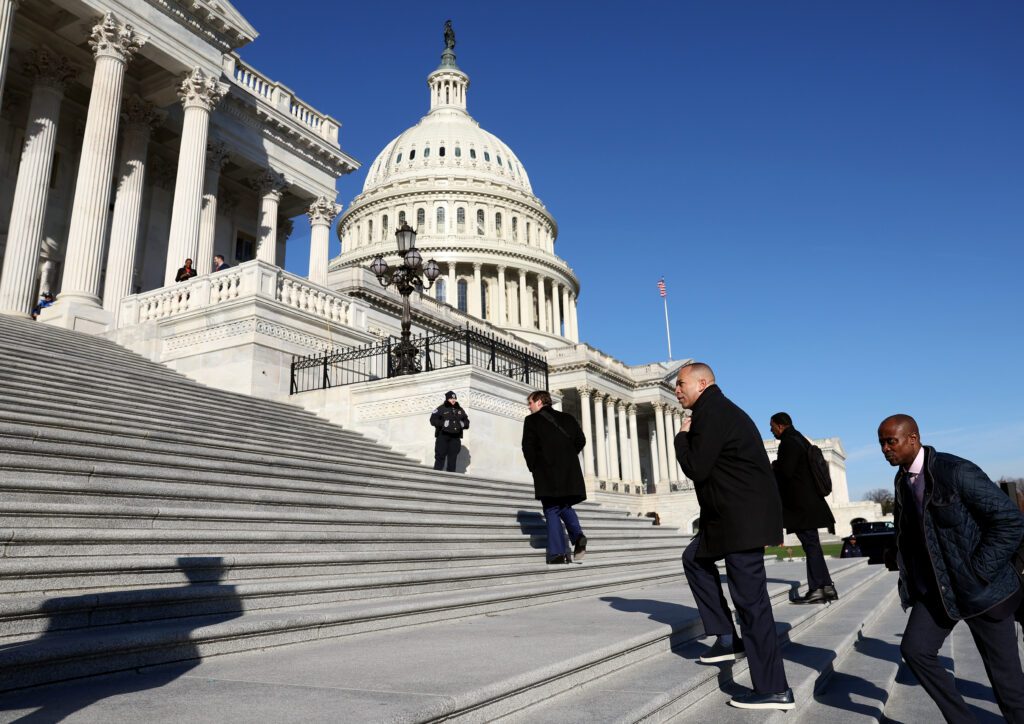
Given the House’s lasting quest to elect a new Speaker following the unprecedented removal of Kevin McCarthy(R-CA), and the legislative needs to discuss and pass several appropriations bills, U.S. congressional measures and activity on China were relatively limited in the last four months of 2023. While Congress broadly introduced and discussed around 276 bills on China and China-related issues from January to August, only about 90 China-related bills were introduced or witnessed significant progress from September to December 2023.
That being said, China remains an important and essential topic as U.S. lawmakers worked to ensure American competitiveness and support American interests. From September to December, 2023, three major trends are specifically worth noting. First, U.S. lawmakers continued to work on adjusting and rebalancing U.S.-China trade to fit America’s new strategic needs as they sought new methods to address familiar concerns such as the trade deficit, supply chain resilience, and labor and environmental standards in trade. Second, to support U.S. leadership and competitiveness in the technologies and industries of the future, Congress contemplated a wide range of methods such as restricting sensitive intellectual property and severing U.S.-China research and educational ties, in addition to continuing efforts to enhance domestic investment and prevent American capital from flowing into the Chinese market. Third, the shifting geopolitical landscape, particularly the historic Saudi-Iran deal and the reignited war in Gaza, intensified congressional attention on and concerns about China’s global influence. Especially with regard to China’s role in the international economic order, in international organizations, and in key regions such as Asia and the Middle East, U.S. lawmakers developed a deeper focus on addressing and containing the challenges that China poses at multilateral forums.
by Sourabh Gupta
February 23, 2024
With a mix of alarm and dismay, observers have watched as a twice-impeached former president, who is also the first such officeholder to be criminally indicted in 234 years of American history, has risen to the top of the presidential polls. That Donald Trump may return to the White House in January 2025 is a sad reflection of the state of American democracy.
Trump’s populist-nationalist “America First” appeal, though, reaches beyond his outsized and, at times, unhinged personality, and is primarily socio-economic and socio-cultural in nature, and accentuated by America’s peculiar presidential vote-counting method…
This commentary was originally released by Xinhua News Agency on February 23, 2024. The views expressed in this article are those of the author and do not necessarily reflect the positions of Xinhua News Agency.
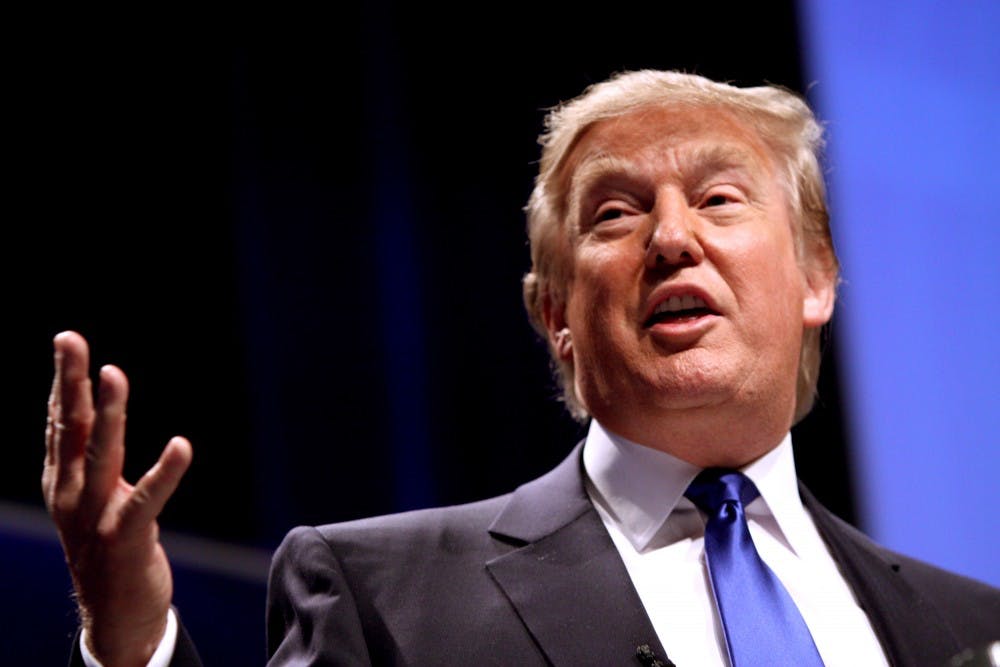
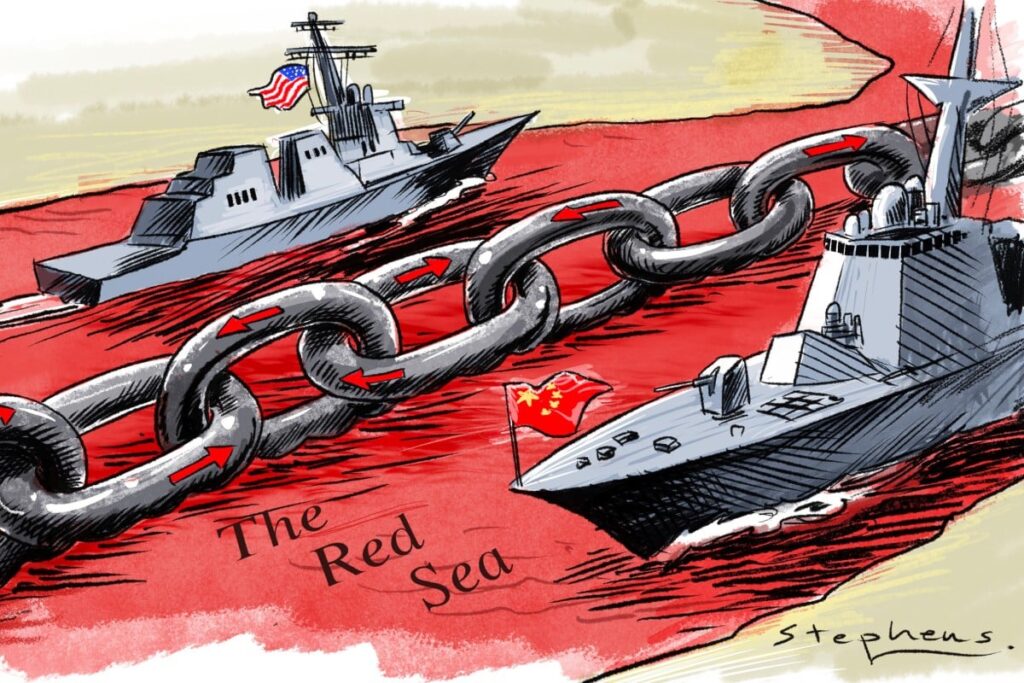
by Nong Hong
February 13, 2024
The disruptive consequences of the attacks on Red Sea shipping by Yemen’s Houthi rebels were underscored recently by Jan Hoffmann, the logistics chief at Unctad, the UN trade body. These incidents, he noted, were exacerbating the vulnerabilities of global trade and supply chains, adding to the challenges arising from the Ukraine conflict and from reduced shipping in the Panama Canal, where water levels have been dropping due to climate change.
The armed Houthi rebel group, which has taken up the cause of the Palestinians, has said it is only targeting merchant ships in the Red Sea with an Israeli connection, promising safe passage for vessels from China, Russia and other nations. In a significant attack last month, however, Houthi militants fired missiles at a tanker carrying Russian oil near the coast of Yemen…
This commentary was originally released by South China Morning Post on February 13, 2024
US-China Global Maritime Relations (Routledge, 2024)
By Nong Hong
Release Date: January 1, 2024
This book explores the U.S.-China global maritime relationship, examining the development and implementation of the maritime strategies of both the United States and China.
Delving into the U.S.-China maritime relationship within the global context, the book investigates six key maritime regions: the South China Sea, the Northeast Asia waters (the East China Sea, the Yellow Sea), the Indian Ocean, the South Pacific Ocean, as well as the Arctic and Antarctic regions. Its observations form a comprehensive exploration of these regions and their significance in shaping the dynamics between the two nations, and this analysis reveals that an expanded view is necessary to discover and clearly display the role that these maritime regions currently—and could potentially—play in overarching U.S.-China relations.
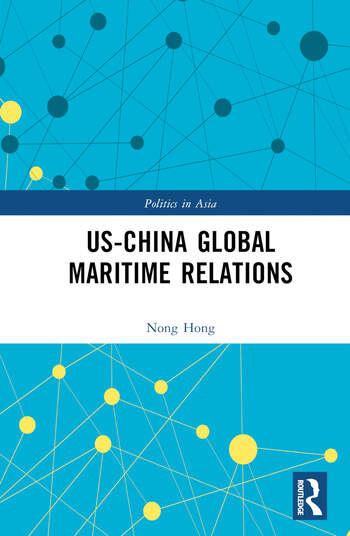
On Friday, February 16, 2024, Senior Fellow Sourabh Gupta interviewed by Sputnik International radio’s The Final Countdown on the recent Indonesian presidential elections.
On Wednesday, February 14, 2024, Senior Fellow Sourabh Gupta discussed the World Governments Summit in Dubai on CGTN America’s The Heat.

The Institute for China-America Studies is an independent nonprofit, nonpartisan research organization dedicated to strengthening the understanding of U.S.-China relations through expert analysis and practical policy solutions.
1919 M St. NW Suite 310,
Washington, DC 20036
icas@chinaus-icas.org
(202) 968-0595
© 2024 INSTITUTE FOR CHINA-AMERICA STUDIES. ALL RIGHTS RESERVED.